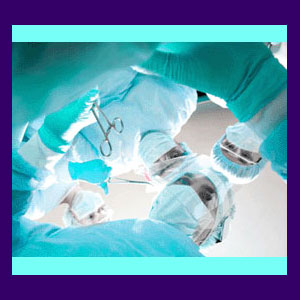
Degenerative disc disease surgery is one of the worst uses of invasive back and neck pain treatment. DDD is a completely normal part of the aging process and is rarely symptomatic. It is also one of the most illogically diagnosed causes of chronic back ache today. It is a travesty of good medicine to blame most symptoms on this scapegoat condition.
The misdiagnosis of degenerative disc disease is one of the main causes and perpetuators of the back pain epidemic and the most common reason why many patients never find lasting relief from their torturous disc degeneration suffering. Being that surgery is such a drastic therapy modality, patients are strongly advised to research their options carefully before agreeing to any particular procedural selection.
This article takes a critical stance against the diversity of surgical interventions which are typically utilized for common forms of disc desiccation.
Degenerative Disc Disease Surgery Myths
Using surgery to treat degenerative disc disease is akin to using an invasive operation to treat grey hair or wrinkles. DDD is not some rampant degenerative disease as its name suggests. It is a normal process by which the intervertebral discs lose moisture and shrink. Nothing more, nothing less.
Doctors love this condition, since it is nearly universal in the population and provides a convenient scapegoat on which to blame any unexplained back pain. Blaming aging is far easier and acceptable than trying to delve into the complicated realm of diagnostic evaluation and work hard to actually uncover the real source of pain. This is too much work for many caregivers.
DDD is easily identified and most patients will accept the diagnosis without any question. This makes it much easier to get them into treatment ASAP and start earning money.
Disc Disease Surgery Procedures
The most common forms of spinal surgery used to correct DDD are spinal fusion and the more recently developed disc replacement surgery procedure. Fusion is a procedure that actually removes the flexibility and mobility from the vertebral joints by combining vertebrae into one solid piece of bone. Screws, cages and pins are often used to secure the bones together. This procedure goes against the evolutionary development of the spine. The spine is designed to bend and flex. A solidified spinal segment will cause the deterioration of surrounding spinal levels, leading to a degenerative wave effect and further surgical procedures throughout the spine. Fusion is a very invasive surgery and the recovery time is long and difficult for the patient to endure.
Disc replacement is a procedure in which an artificial spinal disc is implanted into the spine to allow the removal of a degenerated disc. This procedure has promise, but is still in its infancy. Long-term studies are not available regarding the best artificial disc design to use. There are a few designs in limited use and many more in clinical trials. At least this procedure aims to maintain the mobility of the affected spinal levels. The procedure is less invasive than many traditional spinal surgeries.
Degenerative Disc Disease Surgery Guidance
DDD is not a condition that usually requires any medical treatment. Back surgery is perhaps the worst possible treatment for this condition. Conservative therapy options will most likely fail, but at least they are unlikely to cause further harm to the patient. Surgery will permanently damage the patient’s spine and limit their future mobility and general health.
Statistically, almost any treatment will be unsuccessful eventually, since DDD is rarely the actual cause of the pain. Even if disc degeneration is responsible, it will continue despite treatment in the same or nearby spinal levels. Treatment successes are mostly temporary and may be due to the placebo effect. Pain from DDD is mostly misdiagnosed and often intensifies due to the diagnostic nocebo effect.
Being that back surgery is a very risky process filled with many possible complications, patients must not rush their decision making process. Statistics clearly show that it is wise to avoid spinal surgery for any condition when at all possible. However, if you have to, or want to undergo an operation, always use considerable time and effort to select the best surgeon and the best surgical technique for your needs.
Back Pain > Degenerative Disc Disease > Degenerative Disc Disease Surgery





